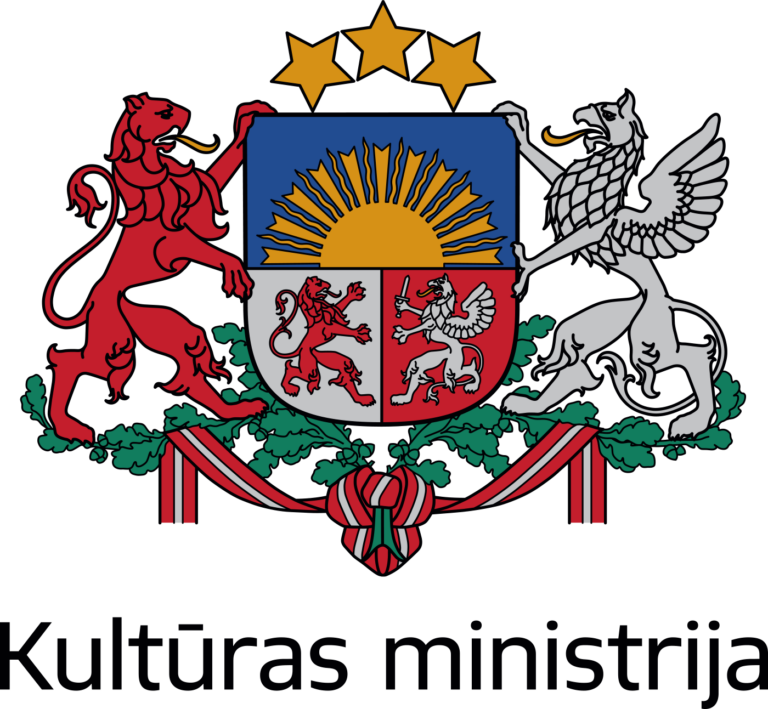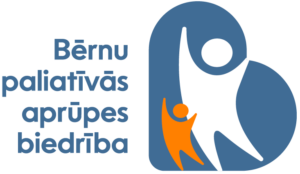Children’s Palliative Care Society is founded
Children’s Palliative Care Society is registered
The first full-service multidisciplinary children’s palliative care team in Latvia, providing inpatient and outpatient consultations, is established in collaboration with the Children’s Clinical University Hospital. The team includes a doctor, a nurse, a chaplain, a social worker, a psychologist and a psychotherapist.
Until 2004, the service was paid for by Pieriga Health Insurance Fund.
The Children’s Palliative Care Team starts providing palliative care at home to families living in Riga and Riga region. Initially, it is based on volunteering. Care is provided to 5 families.
On 26 October, the palliative care service facility opens at the Children’s Clinical University Hospital.
The website www.palliative.lv is created, which provides general information about PC and how to access it in Latvia, as well as information for professionals.
The Society starts implementing a project funded by the Riga City Council, which pays for the work of a chaplain, a psychologist and a social worker in the palliative care team.
The cooperation with the Riga City Council will continue until the end of 2017.
The Society is granted public benefit status.
The charity campaign “Give a Dream!” is launched. Its idea is to make come true the dreams of terminally ill children.
The Society’s professionals develop its first training programme, “Children’s Palliative Care”. The programme is included in the curriculum of the RSU Faculty of Continuing Education. First two children’s PC mobile teams in Livani and Ventspils are trained.
“Home Care” receives the social service provider registration certificate from the Ministry of Welfare.
The World Hospice and Palliative Care Day is celebrated for the first time in Latvia by hosting a symbolic event in Vermanes Garden. The event within the framework of the EOUAL Community Initiative is organised by the Society, in cooperation with the Communications Agency.
The Society already provides services at home to 60 families.
The 1st International Conference in Latvia “Best Practice in Children’s Palliative Care” is held. The aim of the conference is to introduce participants with service models for children’s palliative care, share 10 years of experience, and identify contributing factors/barriers to the development of PC.
The Society is recognised as the best non-governmental organisation of 2008 in a competition organised by the Ziedot.lv Foundation.
The Society receives a certificate of appreciation from the Riga City Council Welfare Department for its long-standing, high-quality cooperation and the psychosocial, medical and spiritual support provided to terminally ill children and their families.
Professionals from the Children’s Palliative Care Team, in collaboration with the Distance Learning Centre at the University of Dundee (Scotland), involving also faculty members from the Department of Social Work at Riga Stradins University, develop and approve an e-learning methodology for continuing education and professional development of children’s palliative care professionals in the form of distance learning. During the project, the multidisciplinary team of the BKUS Palliative Care Service completed e-learning courses “Communication in Children’s Palliative Care”, “Pain Management in Children’s Palliative Care” and “Principles and Implementation of Distance Learning”. This project laid the groundwork in Latvia for the availability of continuing education for all providers of children’s palliative care services in Riga and rural areas.
The Society’s experts develop a section on children’s palliative care in the Palliative Care training material. This curriculum is used to train medical practitioners throughout Latvia.
Clinical guidelines for children’s palliative care are developed.
The Society starts organising “Atelpas brīdis” (“Breathing Space”) social rehabilitation camps.
Specialists of the multidisciplinary Children’s Palliative Care Team – a psychotherapist and a chaplain – launch a new method of support therapy in the form of support groups for grieving parents. The group therapy seeks to find the emotional balance after the loss of a child.
The Society’s experts develop a training material “Applying invasive manipulations in decompensated oncology and non-oncology patients in paediatric profile practice”. The training course for medical practitioners is organised in 2010–2011 in all regions of Latvia.
The Society is registered as a social rehabilitation institution.
The Liepaja Children’s Palliative Care Mobile Team is formed at Liepaja Regional Hospital. The NHS pays for the work of a doctor, a nurse and a psychologist, while the Dižvanagi Society provides the services of a social worker.
The Society’s experts participate in the development and implementation of the Latvian Medical Association’s training programme “Palliative care programme for the professional development of medical doctors” to update and promote the skills and competences of doctors of various specialties in palliative care.
The CPC Society already provides services at home to 157 families.
The Society launches an ESF project to set up a mobile team of experts to provide services to families in the regions, as well as a telemedicine platform for remote communication with families. Under the project, the Society starts organising and leading support groups for parents of sick children and grieving parents.
The Volunteer Programme in children’s palliative care is developed.
Clinical guidelines for children’s palliative care registered in the NHS Clinical Guidelines Database http://www.vmnvd.gov.lv/lv/420-kliniskas-vadlinijas/klinisko-vadliniju-datu-baze/reistrtas-2013gad/brnu-paliatvs-aprpes-klnisks-vadlnijas
A parents’ initiative group is set up.
The first charity concert “Snow on the Angel Tree” takes place.
The Head of the Society, Dr. Jansone, participates in the development of the second-level professional higher education study programme “Palliative Care Specialist”. The training is delivered at the RSU Faculty of Continuing Education. The study programme is designed for doctors who are certified in internal medicine, family medicine, oncology, chemotherapy, surgery, gynaecology, paediatrics, geriatrics or physical therapy and rehabilitation. Unfortunately, doctors are not interested in learning this specialty.
The study programme is headed by Dr. Jansone and Dr. Sosārs, who are also members of the Certification Commission.
The Society produces 3 educational short films on specific palliative patient care: “Inserting a nasogastric tube”, “Gastrostomy care” and “Tracheostomy care”. These educational films still serve as educational material for families caring for a disabled child with a terminal illness. They are available to everyone on the Society’s website and on YouTube.
The Society becomes a member of the International Children’s Palliative Care Network (ICPCN). Organised participation in the ICPCN promotes the international visibility of the CPC Society and cooperation with NGOs working in the field of CPC in other countries.
The charity campaign “Angel Tree in Bloom” is launched.
The 3rd Baltic Paediatric Congress is held in Riga. As part of this, the Society organises a breakout session on “Children’s Palliative Care. Aspects of a multidisciplinary approach”. This is the first time that the Baltic Paediatric Congress has paid special attention to children’s palliative care.
The Head of Society, Dr. Jansone, as a representative of the International Expert Working Group, participates in the 1st International Symposium “Integration of Palliative Care into the Health Care System – Services, Education and Research” in Tbilisi, Georgia.
The Association starts negotiations with the medical and social workers of Livani municipality to establish a new mobile CPC unit in Latgale region. However, due to lack of funds it never opens.
Proposed amendments to the Law on Social Services and Social Assistance are drafted and submitted to the Ministry of Welfare, stipulating that psychosocial rehabilitation for persons with oncological diseases and their family members, as well as for children in palliative care and their family members is provided by the state, while the type, scope, content, conditions and procedure for granting the service are determined by the Cabinet of Ministers.
The Society receives the Human Development Award for an outstanding contribution to health and well-being.
In 2016, the first resident enters the study programme “Palliative Care Specialist”.
Palliative care is approved as an additional specialty for doctors.
The Society becomes a member of the International Children’s Palliative Care Network(ICPCN) Children’s Palliative Care Advocacy Working Group, which aims to highlight the issues of children’s palliative care both nationally and globally.
Certificates in the additional speciality “Palliative Care Specialist” are awarded to Dr. Jansone and Dr. Fridrihsone.
Drafting of the Cabinet of Ministers’ Regulation “Procedures for financing psychosocial rehabilitation in palliative care from the state budget” in cooperation with the Ministry of Welfare.
For the first time, a conference on palliative care “Life, death and palliative care” is held as part of the Latvian Congress of Physicians’ programme. Head of the Society and BKUS Palliative Care Service Dr. Jansone introduced participants of the Congress with the growth, achievements, difficulties and obstacles to the development of children’s palliative care services in our country.
At the same time, the 4th Latvian Congress of Nurses, Midwives and Physicians’ Assistants takes place, where Chief Nurse of the BKUS Palliative Care Service, Sofja Tomase, will present results of the study “Quality of Palliative Care for Paediatric Patients”.
The Society receives a special award at the Annual Award in Medicine 2017 for its outstanding contribution to health and well-being through its palliative care services.
The Society starts to implement the task delegated by the state government, i.e. the provision of psychosocial rehabilitation services to families receiving children’s palliative care services.
Home-based PC services are now provided by 2 teams of social workers and chaplains, who provide psychosocial rehabilitation services not only to families residing in Riga, as was the case until 2018, but also to families throughout Latvia.
Home-based children’s palliative care services are now being provided to 289 families.
The Ministry of Welfare makes changes in the Register of Social Service Providers and changes the service provided by the Society from “Social Rehabilitation Institution” to “Psychosocial Rehabilitation”.
A series of concerts “My Friend Mārtiņš Freimanis” take place in collaboration with Micrec PM and the Mārtiņš Freimanis Foundation, with main purpose of supporting the creation of Bridges of Dreams Care Centre for terminally ill children.
At the EU Fund project award ceremony RegioStars 2019, the Society wins 1st place in the category “Inclusive growth: fighting against inequality and poverty – children’s palliative care mobile team services – home care.”
The Bridges of Dreams photography project in collaboration with Angela Forker, the internationally acclaimed author of the Precious Baby Project. The Bridges of Dreams photo exhibition starts its journey in Latvia and the Baltics.
1998-
During its lifetime, the Society has implemented 12 international and 23 local projects, and has participated in 2 international projects.
The Society has been involved in the drafting of several pieces of legislation and planning documents, thus protecting the interests of families in palliative care and providing a professional vision to improve services and to ensure the development of the sector.





